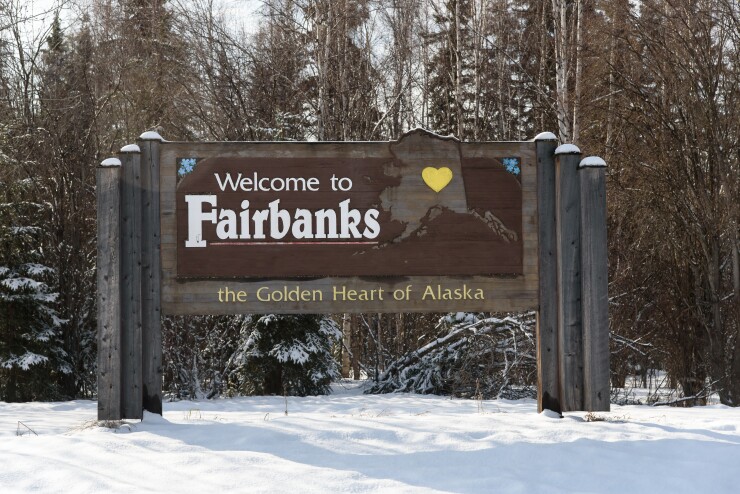Rural Alaskans, including Native Americans living in the mountains, may not have access to traditional banks. But they aren't exactly living off the grid.
There's an unmet need to help this population shop online and make transfers to friends and family. But living in a locale that's outside the reach of mainstream banks makes it hard to perform these and other tasks when so much of their lives revolves around the limited availability of physical cash.
“Planes fly cash in and out of these villages at great cost and expense, because most locals don’t live anywhere near a bank branch,” Allen Haddadi, CEO of CashCard Alaska. “Cash habits make it hard to plan ahead, buy good food or pay a fair price for services, and these people want more options to order important items online."

Haddadi—who previously supported a store serving members of North America's last nomadic tribe near Alaska's Brooks Range—developed the BushCard after experiencing the hassles of inland Alaska’s cash-based economy firsthand. Checks are a common alternative in Alaska’s most isolated areas, but those are prone to fraud, Haddadi said.
“In Alaska, anything outside of Fairbanks or Anchorage is pretty much considered the bush, and that’s where a lot of people live,” he said.
It took six years to develop the BushCard, a reloadable prepaid Mastercard debit card, issued by Sunrise Banks — an issuer known for niche prepaid products such as the
The BushCard was designed to have a fee schedule that was easy to understand, but that in and of itself presented a hurdle to development.
“I wanted the fees to be in whole numbers with no decimals, so fees are $1, $2 or $5 instead of $4.99, which adds confusion, but I kept running into banks and program managers who didn’t want to work with us in the way we envisioned the card,” Haddadi said.
Fees for the BushCard are fairly typical otherwise, with free direct deposit and signature-debit purchases in stores and online. The $5 monthly fee waived if the customer deposits at least $750 the beginning of each billing cycle. It costs $1 to transfer funds to another BushCard customer and $2 for each ATM withdrawal.
Relying primarily on word of mouth for marketing, Haddadi expects BushCard to generate most of its revenue from interchange instead of account fees.
One zone where Haddadi will promote BushCard is around the Anaktuvuk Pass, located between Fairbanks and Barrow. This region is inhabited by descendants of the native Iñupiat who previously lived by following caribou routes.
Haddadi once served as general manager of Nunamuit Corp., which operates villages in the region, supervising deliveries of cash by plane and armored car. Now based in Anchorage, the Moroccan-born Haddadi plans to market BushCard in many similar outposts around Alaska.





